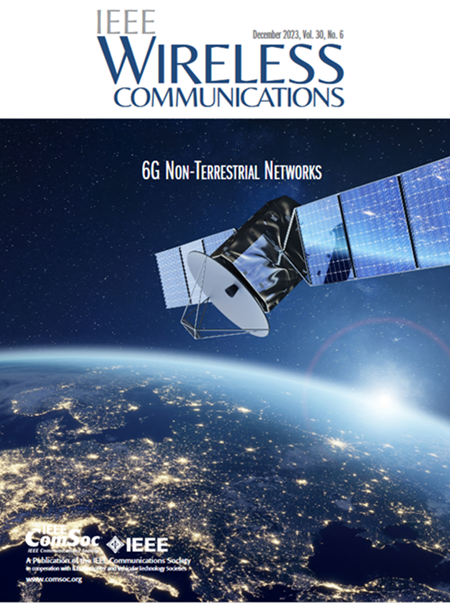绿色元数据库的服务预订和定价:一个Stackelberg博弈方法
IF 11.5
1区 计算机科学
Q1 COMPUTER SCIENCE, HARDWARE & ARCHITECTURE
引用次数: 0
摘要
Metaverse允许用户通过他们的数字化身相互交流、协作和社交。由于时空特性,以协作方式执行软件组件可以很好地服务于同一位置的用户,这样,元空间服务提供商(MSP)消除了冗余的数据传输和处理,最终降低了总能耗。节能服务的提供对于实现绿色和可持续的元宇宙至关重要。在本文中,我们以增强现实(AR)应用程序为例来实现这一目标。此外,我们还研究了用户如何从MSP那里预订卸载服务,以及MSP如何在考虑货币成本的情况下合理决定是否接受卸载服务的情况下确定最优收费价格的经济问题。在MSP和用户之间建立了一个单领导多追随者的Stackelberg博弈,每个用户都优化卸载概率,以最小化时间、能量消耗和货币成本的加权总和。数值结果表明,与传统方案相比,该方案在满足个体合理性的同时实现了节能。最后,我们确定并讨论了几种新兴技术如何与可持续绿色元宇宙相结合的开放方向。本文章由计算机程序翻译,如有差异,请以英文原文为准。
Service Reservation and Pricing for Green Metaverses: A Stackelberg Game Approach
Metaverse enables users to communicate, collaborate and socialize with each other through their digital avatars. Due to the spatio-temporal characteristics, co-located users are served well by performing their software components in a collaborative manner such that a Metaverse service provider (MSP) eliminates redundant data transmission and processing, ultimately reducing the total energy consumption. The energy-efficient service provision is crucial for enabling the green and sustainable Metaverse. In this article, we take an augmented reality (AR) application as an example to achieve this goal. Moreover, we study an economic issue on how the users reserve offloading services from the MSP and how the MSP determines an optimal charging price since each user is rational to decide whether to accept the offloading service by taking into account the monetary cost. A single-leader multi-follower Stackelberg game is formulated between the MSP and users while each user optimizes an offloading probability to minimize the weighted sum of time, energy consumption and monetary cost. Numerical results show that our scheme achieves energy savings and satisfies individual rationality simultaneously compared with the conventional schemes. Finally, we identify and discuss open directions on how several emerging technologies are combined with the sustainable green Metaverse.
求助全文
通过发布文献求助,成功后即可免费获取论文全文。
去求助
来源期刊

IEEE Wireless Communications
工程技术-电信学
CiteScore
24.20
自引率
1.60%
发文量
183
审稿时长
6-12 weeks
期刊介绍:
IEEE Wireless Communications is tailored for professionals within the communications and networking communities. It addresses technical and policy issues associated with personalized, location-independent communications across various media and protocol layers. Encompassing both wired and wireless communications, the magazine explores the intersection of computing, the mobility of individuals, communicating devices, and personalized services.
Every issue of this interdisciplinary publication presents high-quality articles delving into the revolutionary technological advances in personal, location-independent communications, and computing. IEEE Wireless Communications provides an insightful platform for individuals engaged in these dynamic fields, offering in-depth coverage of significant developments in the realm of communication technology.
 求助内容:
求助内容: 应助结果提醒方式:
应助结果提醒方式:


